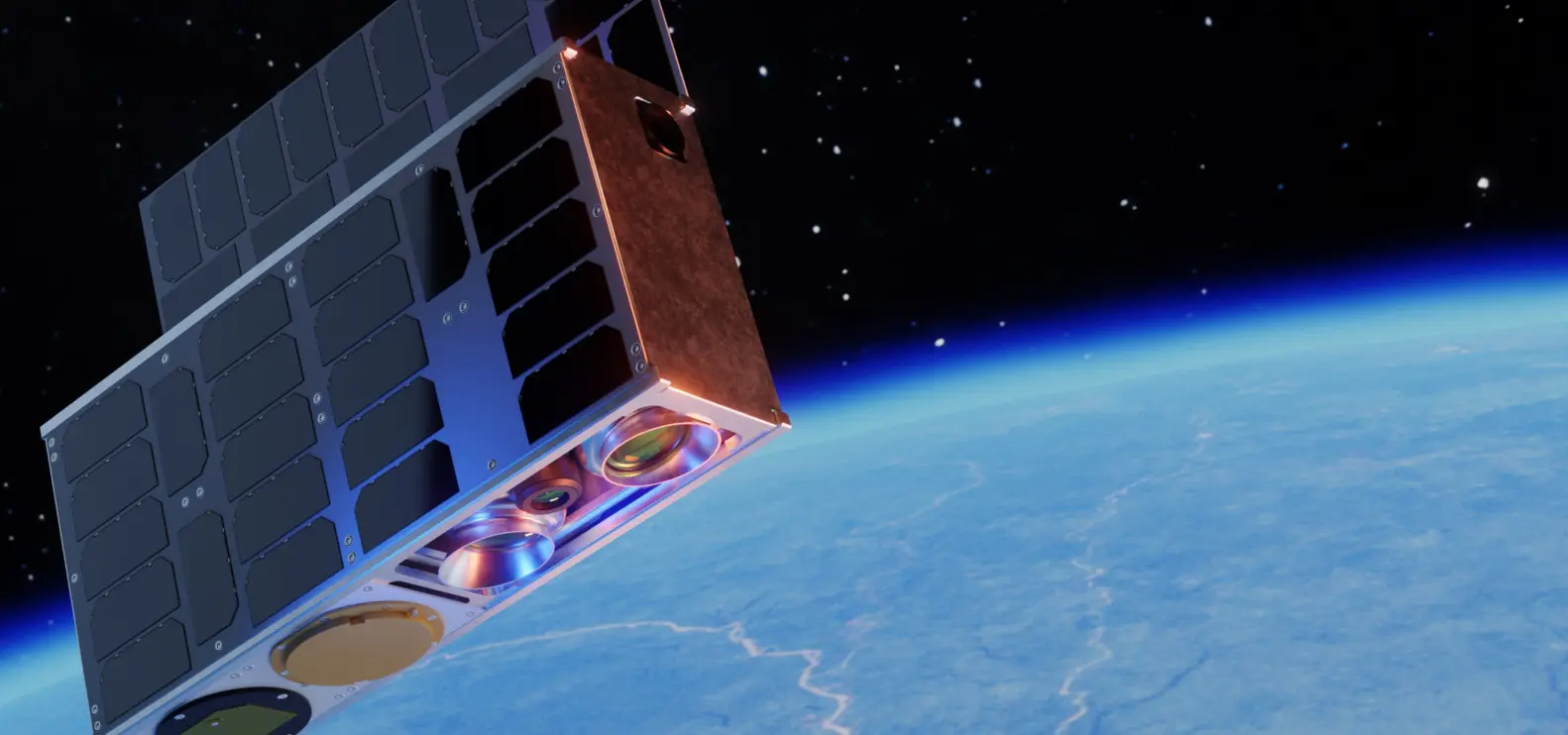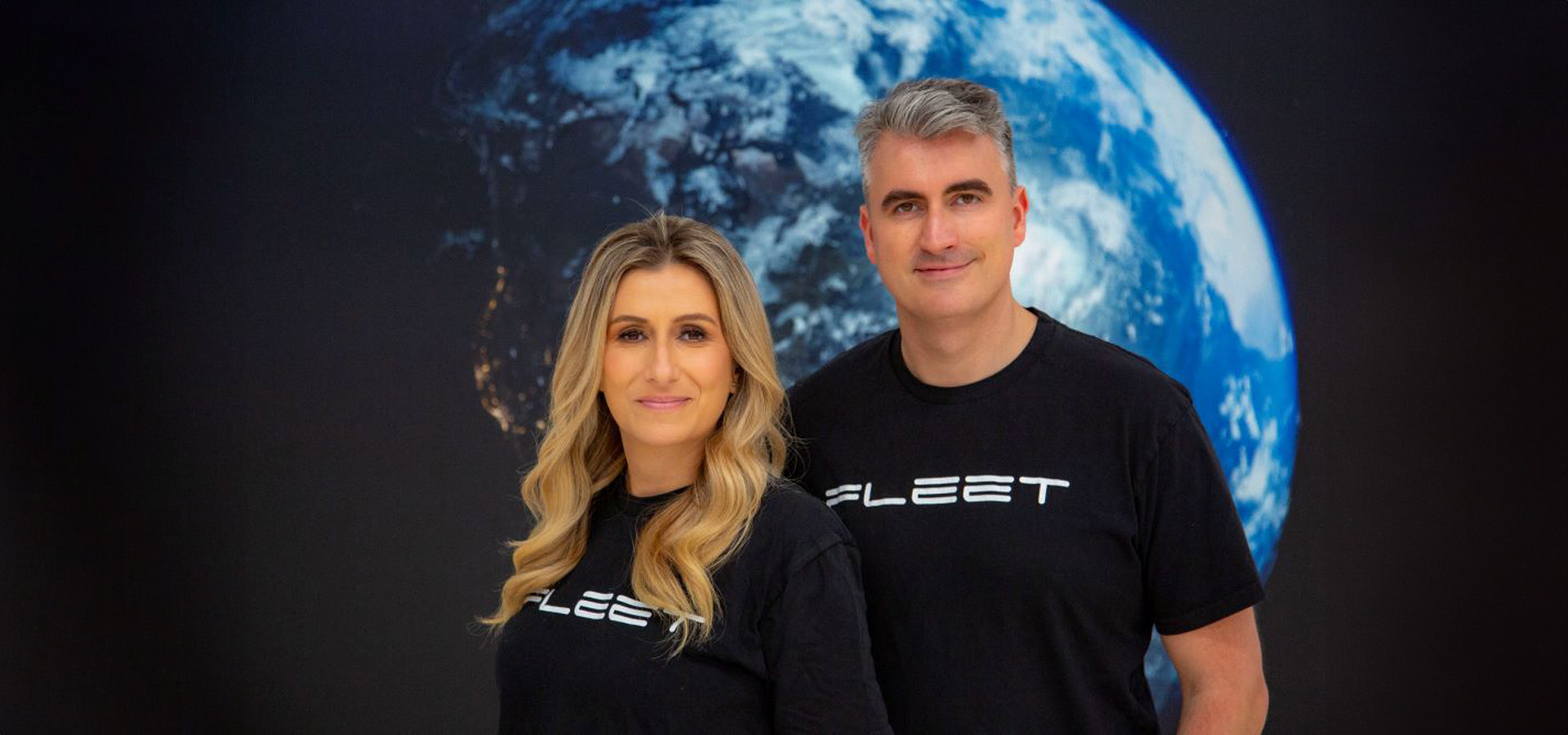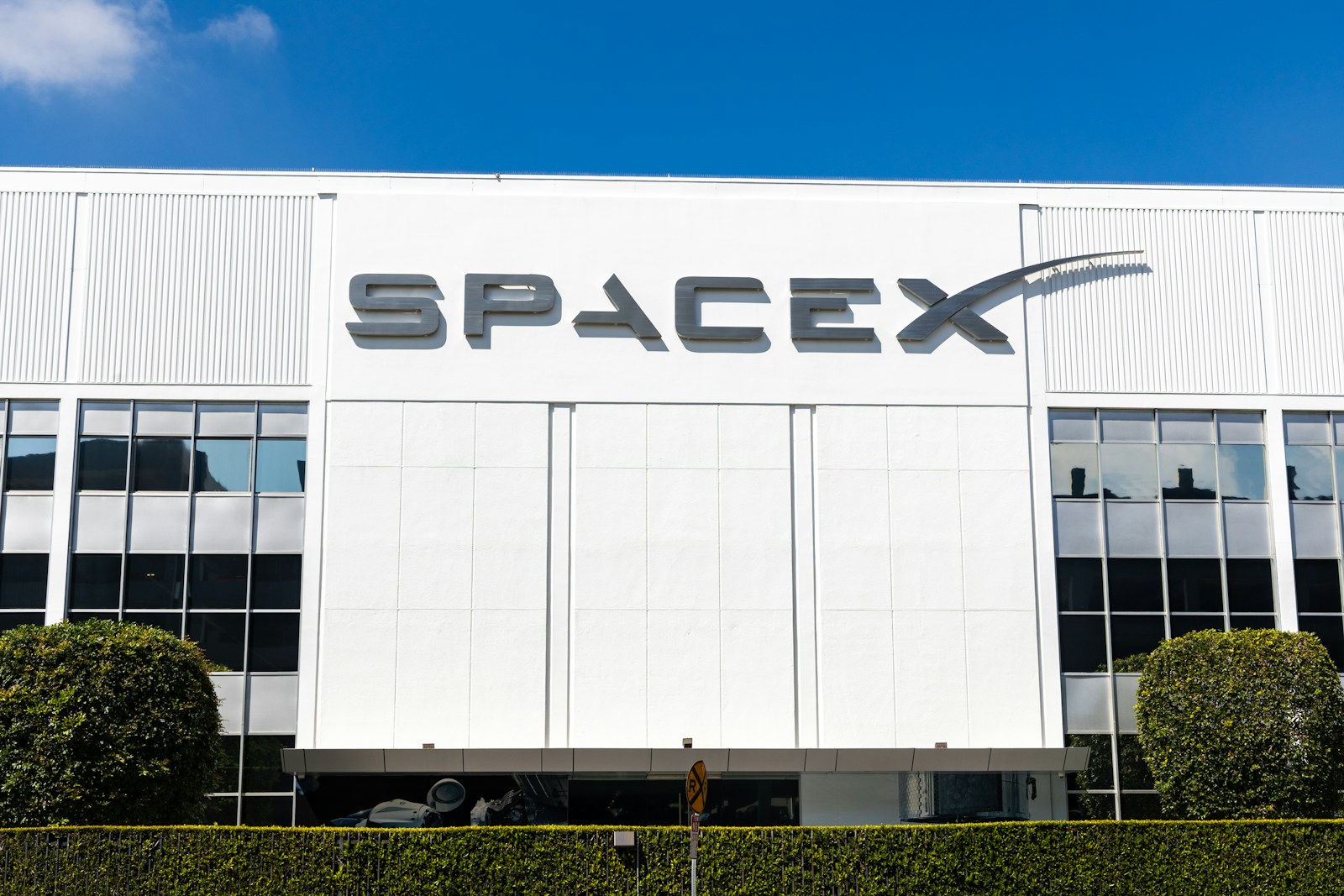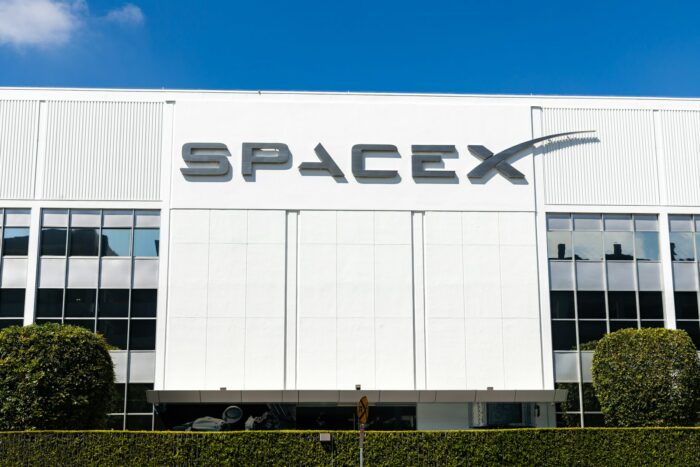Europe’s interest in outer space dates much earlier than the USSR’s (Union of Soviet Socialist Republics) Sputnik-1 launch in 1957. The ancient Greeks had developed an interest in space and celestial objects as far back as the 8th century BCE. More than two thousand years later, the space realm has developed much more drastically than the ancient Greeks may have predicted. Nevertheless, Europe’s interest and subsequent participation in space remained across centuries, culminating in the current booming European New Space industry. Many innovative European space companies are responsible for this boom, and this article will take a look at some of these companies.
Europe aims to leverage the many benefits of space through significant commercialization of the realm. For example, Europe aims to optimally commercialize various aspects of the space industry, including satellite navigation, tourism, consumer and health markets, agriculture, and IoT applications. Given what we know about the space industry, Space offers a significant business avenue for Europe. For example, the Global Navigation Satellite System (GNSS) downstream market has enjoyed significant growth, and market revenues from both devices and services will potentially grow from US $212 billion in 2021 to US $524 billion in 2031.
Likewise, the market for Earth observation (EO) data and services is enjoying steady growth. The industry is looking to grow from roughly US $2.98 billion to over US $5.85 billion over the next decade. Furthermore, EUSPA expects the EO data market to grow with a CAGR (Compound Annual Growth Rate) of 3.5%, resulting in US $848 million in total revenues by 2031, whilst for EO value-added services, the market will potentially grow at a CAGR of 6.8%, resulting in US $5 billion by 2031. Essentially, there is a market that the European New Space industry can tap into and they have been doing!
Table of Contents
ToggleSpace Companies in Europe
European space companies’ growing influence is feeding from the high investment appeal of the European private space sector. Current investment in the European private space market stands at a considerable US $1.06 billion as of 2022, growing from US $53.23 million in eight years. Furthermore, Venture Capital (VC) during the 2014-2022 period, accounted for a substantial 76% of the total investments. In addition to venture capital, the support the European space start-up sector has received from public institutions has been on the rise, increasing from 2% to 16% in terms of direct public investments to New Space investments in Europe.
After our observation of the ecosystem, it is safe to assume that the increasing investment in the European private space sector is a testament to the innovative and commercial exploits of the various space companies across the Continent. Here are some of these top and innovative European private space companies across different sectors of the global space industry:
Launch Service Providers in Europe
1. Arianespace
This France-based launch service provider and first commercial space transportation company is a prominent European space company. The company was established to ensure Europe’s independent access to space while providing competitive and dependable launch services to all markets. Arianespace launches satellites into space with its eponymous Ariane family launch vehicle and its access to the equator, which comes from operating from the Guiana Space Center in French Guiana, allows it to ensure efficient and cost-effective equatorial launches for geostationary orbit satellites.
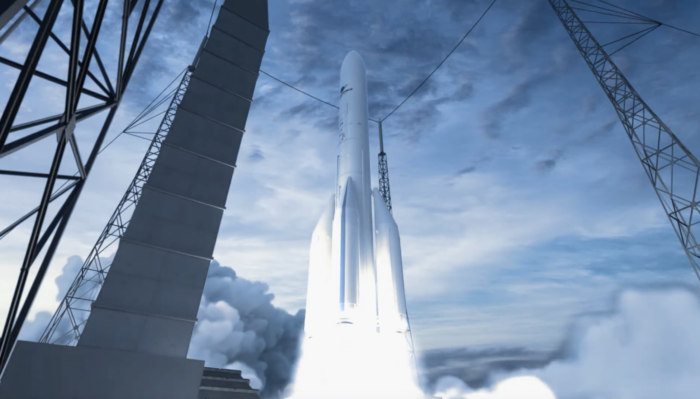
As a space company in Europe, Arianespace plays a crucial role in Europe’s geopolitical status. ESA director-general Josef Aschbacher has also repeatedly noted the importance of competitive sovereign launch capability. Arianespace remains one of Europe’s few independent access to space, with its Vega-c rocket thrusting up Europe’s autonomy in space. The rocket helps the European space program by supporting new mission possibilities, including return-to-Earth operations with ESA’s reusable Space Rider reentry vehicle. Other European countries also benefit from the rocket’s reliability as about 13 of them, including Germany, Italy, France, Spain, and Switzerland have used it to launch payload.
In addition to offering the Continent an independent launching capability, the Launch Provider also stimulates economic activity in the region. Employing more than 200 persons across more than ten European nationalities, we at Space Impulse believe Arianespace plays an essential role in the European space economy as well as commercial success through revenue generation, export of launch services, and direct employment of labor, among others.
Visit company’s profile page.
2. Rocket Factory Augsburg (RFA)
This German-based rocket builder and launcher is a prominent European company. This space company was established in 2018 as a corporate spinoff from OHB, via MT Aerospace Holding. In 2019, Stefan Brieschenk and Jörn Spurmann became its board members and co-founders as the company transitioned into a public shareholding. In addition, RFA also recently completed its hot-fire test milestone, completing a total of 74 seconds of hot-fire testing of its in-house Helix engine in flight configuration. The German space startup also achieved this without having to replace any components of the engine.
RFA is leveraging modern engineering techniques to maximize the cost advantages of serial production. This helped the German start-up to build rockets just like cars. The 2018-founded company’s goal is to produce at the lowest cost and precisely deliver all satellites into orbit with its unique orbital stage. RFA thinks “transportation from the satellite’s point of view, so it leverages commercially available industrial-grade components that have been adapted to conditions in space. This helps the Startup to develop a standardized, modular production process. In this way, RFA aims to realize consistent quality at a decreasing cost per unit.
The company’s RFA ONE is its three-stage launch vehicle powered by its Helix ORSC engines. The launcher’s parts are made from low-cost stainless steel, while the Launcher uses industrial components from the automotive, oil, and energy industries, among others. RFA ONE features an Orbit Transfer Vehicle (OTV) called Redshift. We at Space Impulse believe the company will aim to leverage later variants of the launcher to consequently allow recovery of the first stage and reusability of the engines.
Visit company’s profile page.
You may also like:
European Satellite Manufacturers
Europe also offers the global satellite industry with various satellite manufacturers renowned for their contributions to the global satellite and space industry. These companies have developed space and actual flight heritage by producing several communication and Earth observation satellites for scientific and navigation spacecraft. These top companies are influential to Europe’s satellite engineering strategy and here are some of them:
1. Airbus Defense and Space
Airbus Space is a division of Airbus SE, a European multinational aerospace and defense corporation. Airbus Space helps Airbus SE realize its aims around the space industry in the Continent and globally.
Airbus Space’s portfolio runs across Telecoms, Earth Observation, Navigation, in-space and on-ground infrastructure, and many more. With regard to manufacturing exceptionally reliable, high-performance telecommunications satellites, we can see that this Airbus SE subsidiary is a legacy developer. Airbus’ Eurostar series of satellites has enjoyed more than 1,000 years of successful operation. Airbus’s Onesat platform is also revolutionizing the satellite market because of its ability to be reconfigurable while in orbit. Furthermore, OneSat is capable of adjusting its coverage area, capacity, and frequency “on the fly” to meet evolving mission scenarios.
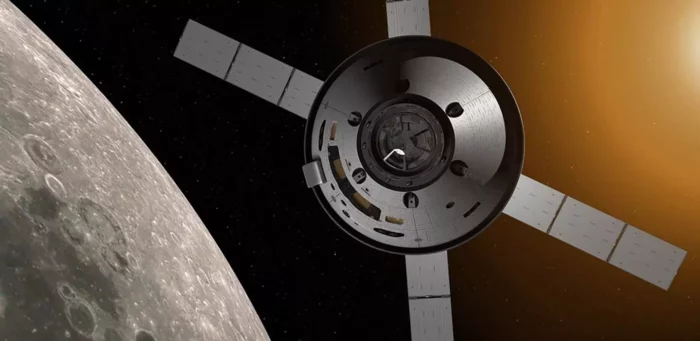
Airbus has also leveraged its satellite manufacturing potential to accelerate the development of the satellite constellation market. The French-based multinational partnered with OneWeb to develop 648 satellites for its constellation and has launched 542 of them as of January 2023. The company, in a bid to revolutionize the market with its constellations, is innovating to dramatically lower the cost in large volumes for high-performance space applications. As a testament to the European private space company’s value and goal, Thaicom Public Company Limited, a leading Asian satellite operator and space technology company has contracted to leverage Airbus’ OneSat platform to extend its connectivity in Ku-band over the Asia-Pacific region for its users.
In keeping up with its European space giant legacy, Airbus Space has also recently partnered with Voyager Space, to develop, build, and operate Starlab, a commercial space station aiming to succeed the International Space Station. According to Jean-Marc Nasr, Head of Space Systems at Airbus., Airbus prides itself on partnering with companies that are looking to change history.
2. Kongsberg NanoAvionics
Kongsberg NanoAvionics focuses on delivering new-generation satellite buses and their mission services for the satellite applications market. This European space company operates out of Vilnius, Lithuania, and constantly aims for perfection, not only in terms of the design of its satellite buses and their systems but also in ensuring state-of-the-art manufacturing standards. The Kongsberg NanoAvionics describes its service as a complete combination of small satellite technology, mission services, and team experience that provides simplified access to space for organizations globally.
Managed by CEO Vytenis Buzas, the satellite production company specializes in developing various nanosatellite and microsatellite (up to 220 kg) buses to match customers’ mission requirements. The company also designs its flight-proven satellite hardware and software in-house, providing a baseline architecture for a wide range of commercial, scientific, and civilian satellite missions. Kongsberg NanoAvionics intends to use modular systems or “building blocks” to provide flexible, time- & cost-efficient integration, resulting in broad applicability, reliability, repeatability, and manufacturability.
The European space company’s offerings are boosted by the complete constellation-oriented end-to-end mission infrastructure it offers. This turnkey satellite solution can enable its customer to access and leverage space, without rerouting a significant portion of its time and capital to develop the know-how and infrastructure it needs to achieve its vision. In this way, Kongsberg NanoAvionics improves the experience of space access. Because of the company’s heritage in satellite manufacturing, it recently secured an offer from SpeQtral, a quantum communication technology company, to develop the satellite bus for its upcoming SpeQtral-1 mission. SpeQtral-1 aims to provide communications services that require quantum security. The nanosatellite is based on NanoAvionics’s high-performance and multi-purpose M16P bus, which has been flight-proven during multiple Earth observation missions.
Visit company’s profile page.
Read also:
Earth Observation Companies in Europe
Earth Observation is an expression of humanity’s need to be self-aware, looking down on the earth to give us real-time information about the planet’s state. This then enables quicker and more comprehensive decision-making by policy-making bodies in the EU. Many European space companies have sought to exploit the space industry by offering EO services to facilitate several land-based applications. The appeal of EO lies in its versatility, as it can facilitate various non-space activities and endeavors, further maximizing its large-scale development potential. Operating for Europe and the global market, here are some prominent European EO companies.
1. Kuva Space
This young space company envisions a world where near real-time spaceborne insights can significantly change how humans can manage food security, national security, and climate change impact, especially in Europe. This is the company’s drive and it is easy to see that it stems from an effort to address the common challenges the world faces with regard to the socio-economy, geopolitics, and climate change. As a result, Kuva Space has also reached a similar conclusion that timely and actionable spaceborne insights will help humans make informed decisions.
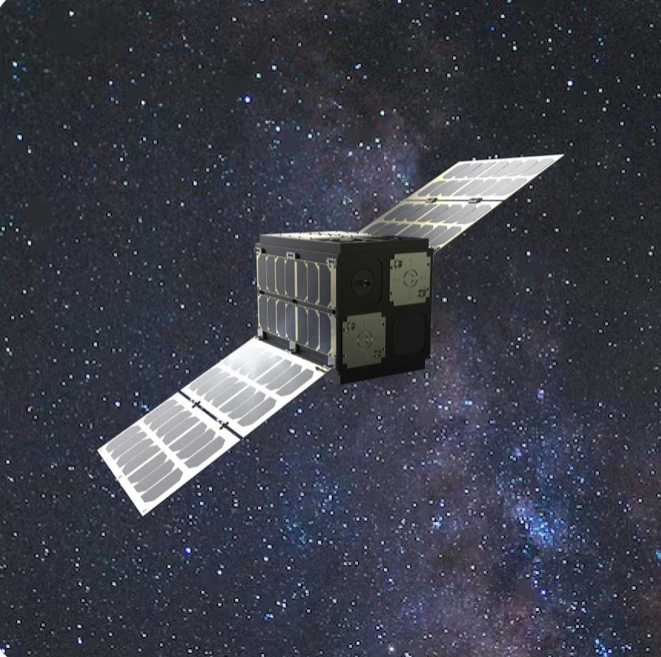
To achieve this goal, Kuva Space offers what it believes is the most extensive hyperspectral satellite constellation and advanced AI-based analytics Europe has to offer if not the world. Its HYPERFIELD-1 is a commercial hyperspectral satellite in shoebox size. The satellite houses the company’s patented hyperspectral camera technology. With this and many more capabilities, the Finland-based space technology company strives to transform how humans understand the Earth.
Kuva Space recently won the esteemed NATO Innovation Challenge to enhance surveillance capabilities in the Arctic. The European EO company won the award as a result of its comprehensive solution that took into account the unique challenges associated with Arctic surveillance. Didier Polomé, NATO ACT Digital Transformation Champion and Special Advisor, also expressed a similar sentiment, stating that the company took one technology and pushed it to the limits which could consequently and subsequently foster collaborative efforts.
Visit company’s profile page.
2. OroraTech
OroraTech is an intelligence-as-a-service company from Munich that uses earth observation to monitor heat from the planet delivering thermal intelligence for a sustainable Earth. This European space company was established in 2018 and its overarching drive is to provide thermal Intelligence to contribute to the development of a sustainable earth. To achieve this, OroraTech assists decision-makers in making better decisions for climate change adaptation and mitigation through continuous thermal data from space.
The company launched its first satellite, a thermal sensor called FOREST-1 in 2022 to orbit the Earth and capture continuous high-resolution thermal images of the surface. The satellite’s data then help to considerably reduce fire detection and notification time, from hours, down to a few minutes, providing invaluable time to avert danger and prevent damage.
We can see the value that this German-based space company offers in the form of its recent contract with the Forestry Corporation of New South Wales, to improve wildfire management in Australia. Mike Sutton, Innovation & Research Manager at FCNSW added that FCNSW is interested to see how early detection can be further improved through the addition of OroraTech’s thermal sensors.
As ESA notes, satellites and the technology that launches and maintains them in space are crucial for communications, security, countering cyber threats, predicting extreme weather events, tracking climate change, maintaining critical infrastructure, and much more. As a result, investing in these technologies, and the industry around it can have a net positive on the welfare and well-being of Europeans and the global community.
Visit company’s profile page.
If you found this article to be informative, you can explore more current space news, exclusives, interviews, and podcasts.
Featured image: Thermal infrared satellite. Credit: OroraTech
By Joshua Faleti
Share this article:

